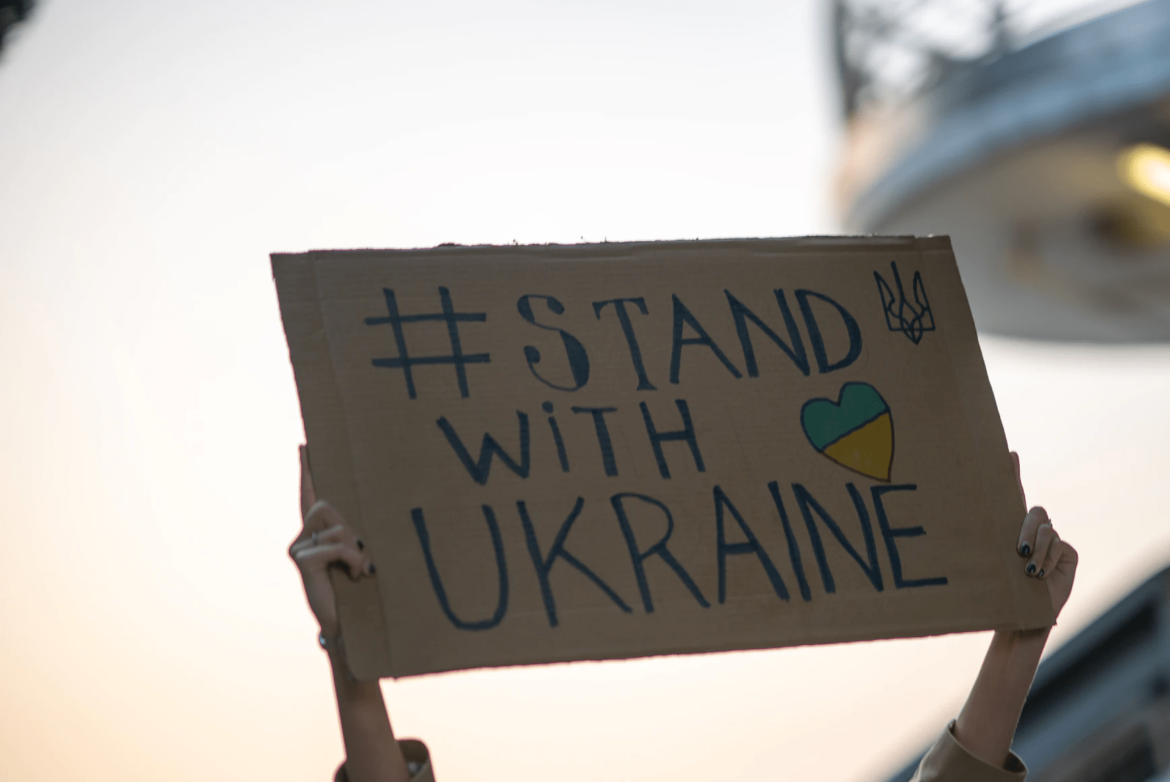Racism is an international phenomenon, operating without respect for national borders. It is partly because of this that racism has been prominent within refugee communities. Canada has prided itself on its response to taking in foreign refugees from all parts of the world, however the current situation in Ukraine has shed light on the fact that even in a multicultural country like Canada, racism persists and is insidiously apparent. The racism in this case pertains to differences in sympathy for Western and ethnic refugees, with the Canadian government undoubtedly showing much more support through their immigration policies to Ukraine than they have shown to ‘third world’ refugees.
The war Russia has inflicted on Ukraine has left many Ukrainian citizens searching for refuge in both near and far countries. Canada has recently launched an emergency travel scheme called the Canada-Ukraine Authorization for Emergency Travel (CUAET), which allows Ukrainian citizens to seek refuge in Canada and remain as temporary residents for up to three years without having to go through the normal visa requirements. As of late March, 91,177 applications have been received, 14,500 have been approved, and 11,827 Ukrainian refugees have arrived in Canada between January 1st and March 27th. The Canadian government has also included as part of the CUAET, a clause granting it to be available for an unlimited number of Ukrainian refugees. The CUAET is significant in the Canadian context as it marks the first time the Canadian government has made an exception for refugees to stay past the typical six month visitor visa period and also surpass standard visa requirements.
The Canadian government has further implemented policies and plans to ensure Ukrainians are capable of seeking refuge and safety in Canada if they so choose. Some of these measures include: the ability to apply for a free open work permit along with a visa application, reception services provided by the Red Cross at airports across the country as well as after-hours on-call services, clinician and mental health services provided on-site by the Red Cross, and information provided at major destinations. The information provided often includes details about services available, tips for settling in a new community, and contact information of settlement agencies. All of these policies and measures are undeniably beneficial for Ukrainian refugees and are a step in the right direction for the Canadian government in assisting this community in their time of need. However, it sparks the question of why such comprehensive and deliberate measures have not been implemented in prior moments of crisis abroad. Furthermore, the question of why it took a Western, ‘developed’, and predominantly white country for these practices to be implemented is provoked.
For instance, in the case of countries such as Syria and Afghanistan who have experienced similar, if not more dangerous and long-lasting conflicts with comparable refugee situations, Canada lacked significant measures. Compared to the 11,827 Ukrainian refugees Canada has accepted since January, only 7,885 Afghan refugees have been accepted since August 2021. Additionally, more than three million people have found refuge elsewhere since Russia’s attack on Ukraine, in contrast to the six months it took for one million Syrian refugees to do the same in 2013. These clear disparities point towards racism and prejudice as arguably actively working in the backdrop.
This claim becomes even more apparent when reflecting on the Canadian government’s response to the Syrian refugee crisis during the Canadian federal elections in 2015. Many conservative politicians at this time drew links between Syrian refugees, Islam, and terrorism, a clear example of the Islamophobia at play in Canada and within political biases and perceptions. When comparing such attitudes to those in the midst of the Ukraine crisis, there has been little fear or backlash in accepting refugees, from politicians and civilians alike. This demonstrates the selective sympathy Canadians portray and Canadian politicians reflect. Not only has the decision to allow Ukrainian refugees been less controversial but also the barriers for refugees have been made as minimal as possible, a measure not taken for Afghan or Syrian refugees. For example, Canada has not waived requirements or made the immigration process easy for those looking to escape Afghanistan. Canada also committed to providing 40,000 Afghans settlement in Canada but the question remains as to why Ukrainian refugees have contrastingly been allowed an unlimited number of refugees.
The difference in the Canadian government’s response to the refugee situation in Ukraine versus previous and ongoing refugee situations in countries like Afghanistan and Syria are evidently the result of transnational racism and prejudice. The extensive support measures provided to Ukrainian refugees as well as the comparative lack of aid in similar realms for ‘ethnic’ refugees exemplifies this. Although the response to Ukrainian refugees is a step in the right direction for immigration and refugee policies, whether these actions will also be implemented equitably for all countries, or whether it will continue to form the exception for Ukraine and other Western nations is an ongoing question.
Edited by Misbah Lalani
Hi I’m Jenna Hicks. I am a third year student studying International Development with a minor in Political Science at McGill University. I have a strong interest in human rights issues as well as feminst related topics and I look forward to being able to share these interests with the Catalyst audience.

